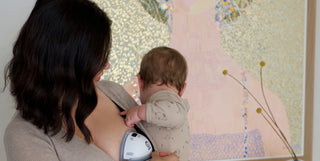How breastmilk helps protect your bub during Cold & Flu season
We’ve just had a gorgeous Aussie summer, but with autumn here and winter on the way, it’s time to prep for the inevitable colds and flus—especially for bubs. In this week’s blog, we chat with IBCLC and mum of four, Ellen Gulson, about the incredible role breastmilk plays in passing immunity from mum to bub. This particular blog is timely after the government’s announcement of the RSV roll out in Australia this week.
This topic hits close to home. When my eldest started daycare, we got hit with all those nasty daycare bugs and viruses facing endless GP visits, ED trips, and a particularly brutal case of RSV (Respiratory Syncytial Virus)—which I also caught while pregnant. It knocked me out for weeks, making me realise just how tough these viruses are on little ones. Fast forward to a few months ago: it was my 9-month-old who brought RSV home this time but we knew what to watch for and avoided the ED, managing it with our GP instead. On our final check-up, the doctor noted I was still breastfeeding and explained that my milk likely helped soften the blow for our bub. MIND BLOWING.
So, I reached out to Ellen to dive deeper into breast milk's role in immunity. She’s also head of Operations at the Australian Breastfeeding Association, and these are the quick fire points she shared with me that I think you should know.
Breast milk is more than just your bub’s first food, it’s packed with protective goodness that helps little ones fight off illness and with cold and flu season around the corner, this one is kind of a big deal not just for bub but for the whole family. Ellen explained, “Colostrum is the baby's first 'vaccination' helping to transfer crucial antibodies from mum to baby”. This thick, golden milk, produced from approximately 36 weeks until bub is born, is rich in antibodies that help kickstart a newborn’s immune system from day one. I was VERY overwhelmed when it came to hand expressing colostrum for my first bub, but for my second, I decided to give it a go, and having these liquid gold immunity boosters in the freezer upon his arrival was a game changer. I used my Silver Shields to collect and stored in syringes provided by my IBLCLC. It allowed me to get some rest in the hospital knowing that dad could feed bub an absolute powerhouse of a meal!  Image by Daniella Stein Photography
Image by Daniella Stein Photography
Every drop counts. Ellen pointed out that “Any breastmilk that your baby gets is great for their immunity. Even mixed fed babies are getting antibodies with even small amounts of breastmilk.” It doesn't have to be an all or nothing approach and whatever amount of milk you produce is going to have a huge impact on your baby's immune system.
Now, with the Australian government’s recent announcement about the RSV vaccine for newborns, Ellen dives into this a little deeper.
“RSV is the leading cause of respiratory tract infections in babies and we are now coming into RSV 'season'. A 2022 study from the American Academy of paediatrics showed that both "... exclusive and partial breastfeeding reduces severity of disease, length of hospital stay and supplemental oxygen requirement" for babies with RSV. So that means that feeding your baby breastmilk will help to keep them safer this cold and flu season.”
I don’t know if you’ve heard but the Australian government recently announced a roll out of the RSV vaccine for eligible newborns. This is a great start in keeping more and more bubs out of hospitals and safe from this nasty virus, but there are still steps the government needs to take in ensuring that every newborn and infant has the opportunity to avoid this nasty illness. So
How the government’s recent announcement of the RSV roll out impacts YOU
Let’s begin with the basics. What is RSV?
RSV is a common virus that affects the upper and lower respiratory system, leading to illnesses such as bronchiolitis and pneumonia. While it often causes mild symptoms, RSV can lead to severe complications, especially in infants under six months old, older adults, and those with certain medical conditions.
Why are infants at higher risk of severe RSV?
RSV (Respiratory Syncytial Virus) is a virus that causes upper and lower respiratory tract infections.
What are the symptoms?
Symptoms often include runny nose, cough, and fever. However, in babies under 12 months, and especially under six months, the virus can lead to more severe illness and hospitalisation.
In infants, RSV can cause pneumonia or bronchiolitis (inflammation and narrowing of the small airways in the lungs), which can lead to significant breathing difficulties. Infection with RSV in infancy is also thought to be associated with the development of other airway diseases, including asthma, later in life.
Why is vaccination during pregnancy important?
Vaccination during pregnancy is recommended to provide protection to infants in their early months of life.
The vaccine induces an immune response against the virus, resulting in antibodies that are passed to baby via the placenta. These antibodies protect baby in their early months of life, when they are most vulnerable to severe RSV infection.
So with all of that in mind..what’s all the hype about the new RSV Vaccine for newborns?
If you and your family have been touched by RSV before you’re going to be elated with this news; Australia has now introduced an RSV vaccine for newborns that never existed previously. This is a huge step forward in keeping little ones safer during the peak season. But there’s a catch: each state and territory is rolling it out differently, so availability depends on where you live.
Here’s a breakdown of the info by state and territory:
Australian Capital Territory (ACT)
The Vaccine (BeyfortusTM (nirsevimab)) is approved for babies and children up to 2 years old. From 17 March 2025, the ACT Government will provide the RSV vaccine for free to eligible babies which include those born with risk factors for severe RSV disease. This includes babies whose birth parent received the maternal RSV vaccine during pregnancy.
Babies born after 17 March 2025 will also be eligible for the vaccine if their birth parent did not receive the Abrysvo® vaccine while pregnant or had the vaccine less than 2 weeks before the baby was born.
From 17 March 2025, Canberra Health Services will provide a catch-up program offering free RSV vaccines for infants and children born between 1 October 2024 and 17 March 2025 who are at high risk for severe RSV disease or who are entering their second RSV season and are at high risk for severe RSV disease.
ACT Health services advise speaking to your GP about eligibility.
Similar to ACT, from 17 March 2025, NSW Health will fund nirsevimab (Beyfortus™) for:
infants at birth not protected by maternal RSV vaccination or who have risk conditions for severe RSV disease, children up to 24 months of age with risk conditions for severe RSV disease entering their second RSV season and NSW RSV Vulnerable Babies Program catch-up for infants born from 1 October 2024 to 16 March 2025 who are not protected by maternal vaccination and did not receive nirsevimab at birth.
Additionally, pregnant women are eligible for free RSV vaccination to protect their babies from birth and recommended at 28 to 36 weeks gestation.
Northern Territory (NT):
The RSV Maternal and Infant Protection Program (RSV-MIPP) commenced on February 3, 2025, offering the RSV maternal vaccine to pregnant women between 28–36 weeks gestation to protect newborns and the RSV vaccine for eligible infants at birth and young children at increased risk of severe RSV disease.
The Queensland Paediatric Respiratory Syncytial Virus Prevention Program expanded on December 1, 2024, offering the RSV maternal vaccine to pregnant women between 28–36 weeks gestation to protect infants up to 6 months of age while the infant RSV vaccine is available for eligible Infants from birth to less than 8 months of age.
The vaccine is recommended for infants if mum did not receive the RSV vaccine during pregnancy, the infant was delivered within 14 days of the vaccine being administered to mum or where the vaccine administration status is unknown, or if the infant has a condition associated with increased risk of severe RSV disease*, or the the infant may have suboptimal RSV antibodies.
The dose should be offered year-round (non-seasonally), the dose should be administered while in hospital but can also be administered by your local primary care immunisation provider.
It’s important to note that once an infant reaches 8 months of age, they will no longer be eligible for this dose.
South Australia (SA):
A state-funded RSV immunisation program will be available for eligible infants and young children from April 1, 2025 with more information released closer to the date.
The RSV maternal vaccine is offered to pregnant women between 28–36 weeks gestation to protect newborns.
Ahead of Winter 2025, from 3 February 2025 free RSV vaccination will be offered to pregnant individuals from 28 weeks gestation to protect infants. Additionally, the infant RSV vaccine will be rolled out for eligible infants whose mums did not receive the vaccine during pregnancy and those with high-risk conditions.
Vaccination is available for pregnant women from 28–36 weeks pregnancy (prior to 37 weeks) by passing RSV-specific antibodies from the mother to the unborn baby to the first six months of infancy.
From 1 April to 30 September 2025, the Victorian Department of Health will implement a complimentary infant RSV immunisation program to protect infants most at risk from severe RSV disease. Eligible infants are those whose mums did not receive the maternal RSV vaccine during pregnancy of where the maternal RSV vaccine was administered less than 2 weeks before birth. The catch up program is for those infants whose mums did not receive the vaccine during pregnancy or where infants were born between 1 October 2024 – 31 March 2025.
Western Australia (WA):
Vaccination is available for pregnant women from 28-36 weeks gestation. This will pass protection to their bubs from newborn to 6 months of age.
From 1 April 2025 to 30 September 2025, for those bubs who meet the eligibility criteria, the newborn RSV vaccine is available even without a Medicare card whose mother did not receive the vaccine, Aboriginal infants and children born on or after 1 October 2023 infants with specific high risk medical conditions (MRC) born on or after 1 October 2023.
How to Get the RSV Vaccine
- Check your state or territory’s health department website for updates. We know you’re busy, so we’ve rounded up the info from each of Australia’s state sand territories below.
- Ask your maternity care provider or paediatrician if your baby is eligible.
- Keep an eye out for official announcements about local RSV vaccine programs.
Want to Learn More?
Breastfeeding plays a huge role in keeping babies healthy, and there’s plenty of science to back it up. Here are some expert resources to check out:
- https://www.breastfeeding.asn.au/resources/breastfeeding-and-immunity
- https://www.breastfeeding.asn.au/resources/whats-so-great-about-breastmilk
- https://publications.aap.org/pediatrics/article/150/1/e2022057531/188927/Impact-of-Breastfeeding-on-the-Incidence-and.
Stay in the Loop
Since this rollout is happening in real time, we’ll update this post as more details come in. In the meantime, you can check out the government’s official RSV vaccine FAQ here (https://www.health.gov.au/sites/default/files/2025-02/respiratory-syncytial-virus-rsv-vaccine-frequently-asked-questions.pdf)
And finally, if you're looking for a GREAT IBCLC, you should contact Ellen via her website here or on socials @ellengulsonibclc

